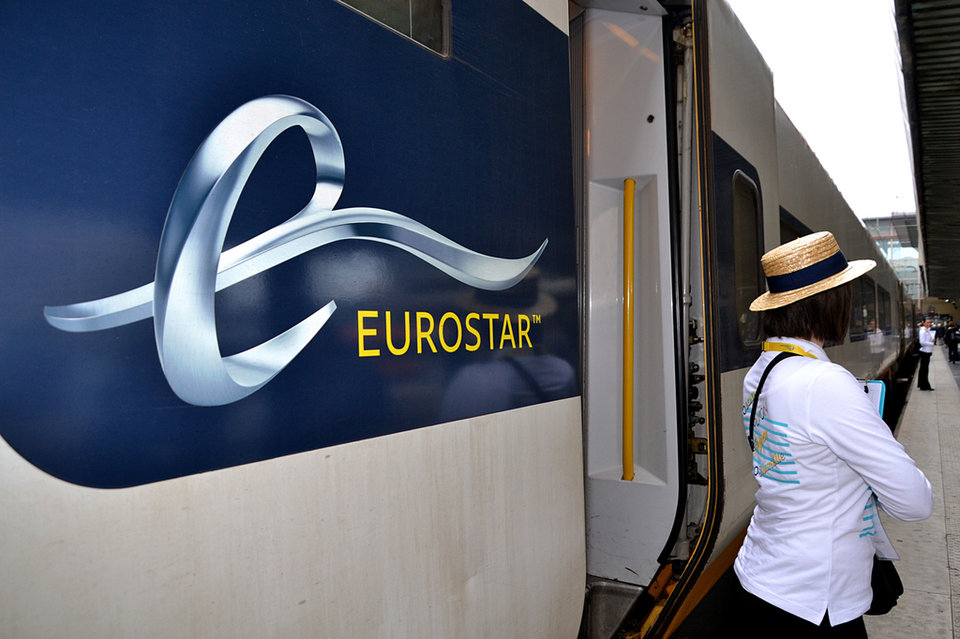We are having constructive conversations with the governments on Brexit
Talks are currently taking place
In 2016, Eurostar International Limited, the company which runs services through the Channel Tunnel, wrote to the Lords EU Internal Market Sub-Committee to express its concerns.
In its evidence, the operator highlighted four main issues in need for clarification, namely safety standards, driver’s licences, the Eurostar’s membership of the single European railway area and regulatory divergence, which, if not addressed, would lead to “significant cost and complexity for our business”.
Two years in, the majority of these topics remain a concern. However, words of encouragement have come from both the UK Government and the Eurostar.
The DfT says that knowing the importance of the Channel Tunnel for business, leisure travel and freight, the government is working to ensure services will continue after Brexit. “We have agreed with the Article 50 Task Force that the UK can negotiate bilateral arrangements,” a spokesperson explains. “Our priority is to minimise barriers for international services and the important, mutual benefits they provide.”
A member of the Eurostar press team makes a similar point: “We are having constructive conversations with the governments on Brexit and will continue to do so. At this point in time, we plan and expect to maintain services on the existing basis and timetable following Brexit.”

Image: Paulo Amorim / Shutterstock.com
To what extent can Brexit affect Eurostar services?
However, while both parties are working to demonstrate constructive negotiations are taking place, it looks like not all that glitters is gold.
Contributing to the debate is Professor Federico Fabbrini, director of the Brexit Institute at Dublin City University, who explains that “Brexit will affect the Eurostar connection between London and Paris/Brussels, as an international border is due to arise between the EU and the UK,” although he highlights that the situation will vary depending on the type of Brexit (hard or soft).
“If there is a soft Brexit,” he says, “with the UK remaining in the internal market for a transition period, this means things can likely continue without change in the short term.” However, failure to reach an agreement – which would consequently trigger a hard Brexit – “would create immediate disruptions.”
Echoing his words, Daniel Zeichner, Labour MP for Cambridge and member of the Transport Committee, claims that although the government is indeed making preparations, exiting without a withdrawal agreement would almost certainly be detrimental for the Eurostar.
He adds that although negotiations with France, Belgium and the Netherlands are being held, “a whole range of issues would have to be resolved very quickly. Put simply, no deal would cause immediate and dramatic disruption.”
While EU Member States currently enjoy a mutual recognition in matters such as the licenses of drivers, failing to reach bilateral agreements would strip the Eurostar off such recognition. “Without the legal frameworks to allow the services to operate on both side of the channel, services will not be able to run,” says Zeichner.
With the clock ticking and the prospect of a no-deal Brexit more real every day, Zeichner claims that finding an agreement is crucial. Otherwise, a ‘no withdrawal’ agreement “has the potential to bring services to a halt in the immediate aftermath of 29 March 2019, the official date for Brexit, but moreso in the long term, it would increase cost for the business and slow down the operation of the service, ultimately putting at risk its business model of quick, hassle-free travel to mainland Europe.”
Failure to reach an agreement would create immediate disruptions
Our members' livelihoods depend on Eurostar being able to run its services
Uncertainty for Eurostar staff
The future of Eurostar staff, a mixture of people with different nationalities, is a key priority for British and Irish trade union the Transport Salaried Staff’s Association (TSSA).
The union, which represents Britons, as well as employees across the European Economic Area, is a loud advocate of remaining within the EU and is lobbying to have a say in the negotiations to protect the rights of Eurostar staff.
TSSA general secretary Manuel Cortes is concerned about the implications: “The company will suffer a big economic hit depending on how big the disruption is. Clearly, our members' livelihoods depend on Eurostar being able to run its services and to make money from them. If this is no longer the case, this will have a damaging and negative impact on them.”
Cortes adds that TSSA members want to get on with carrying out their regular tasks even after Brexit, though are now facing uncertainty as nobody is capable of give them the answers they’re looking for.
As a result, the union can only advise them to wait and see. “[Eurostar staff] should listen to every advice that comes from the government,” says Cortes, “but unfortunately, that has been in short supply, because the government itself doesn't know what it wants to do with Brexit. On the campaigning front, as a trade union we will continue to campaign for our position, which seeks to remain in the EU and preserve freedom of movement.”

Image: GERARD BOTTINO / Shutterstock.com